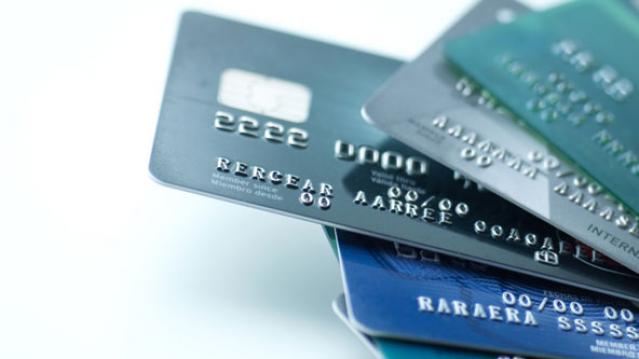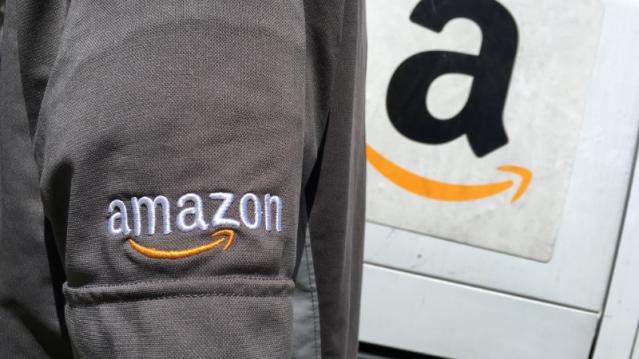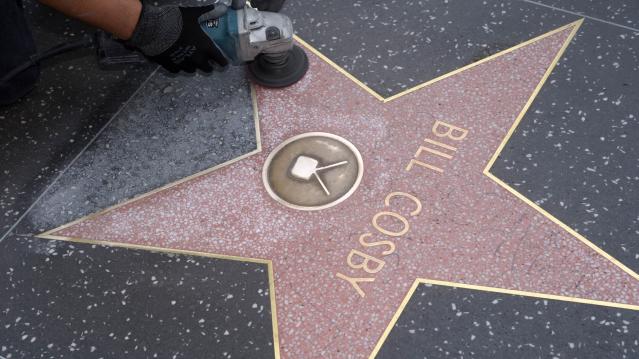How IBM Is Making Your Passwords Useless
For years, quantum computing has been hailed as a technology that could change the way the modern world works, but a long-standing technical issue has kept that potential from being realized. Now, in a paper published in the journal Nature last week, IBM scientists have taken a big step (see how I avoided the temptation to make a pun there?) toward solving that problem — and while it could represent progress toward making quatum computers real, it also could mean that current cybersecurity standards will soon be much easier to crack. In other words, your passwords could be obsolete soon.
The power of quantum computing has some obvious appeal: The increase in processing power could speed up research, especially in big data applications. Problems with large datasets, or those that need many millions (or billions, or more) of simulations to develop a working theory, would be able to be run at speeds unthinkable today. This could mean giant leaps forward in medical research, where enhanced simulations can be used to test cancer treatments or work on the development of new vaccines for ebola, HIV, malaria and the other diseases. High-level physics labs like CERN could use the extra power to increase our understanding of the way the universe at large works.
But the most immediate impact for the regular person would be in the way your private information is kept safe. Current encryption relies on massively large prime numbers to encode your sensitive information. Using combinations of large prime numbers means that anyone trying to crack such encryption needs to attempt to factor at least one of those numbers to get into encrypted data. When you buy something from, say, Amazon, the connection between your computer and Amazon is encrypted using that basic system (it's more complicated than that, but that's the rough summary). The time it would take a digital computer to calculate these factors is essentially past the heat death of the universe. (Still, this won't help you if your password is password, or monkey, or 123456. Please, people, use a password manager.)
Quantum computing, however, increases processing speed and the actual nature of the computation so significantly that it reduces that time to nearly nothing, making current encryption much less secure.
The IBM researcher that could make that happen is complicated, and it requires some background explanation. For starters, while a "traditional" computing bit can be either a 0 or a 1, a quantum computing bit can have three (or infinite, depending on how you want to interpret the concept) states. More specifically, a qubit can be 0, 1, or both.
 Up until now, the both part of that caused some problems in realizing the power of quantum computing.
Up until now, the both part of that caused some problems in realizing the power of quantum computing.
Apparently — and you'll have to take this on faith a bit, as it hurts my head to think about it — the both state can switch back to either 0 or 1 at any given point, and sometimes incorrectly, based on the logic in the programming. Think about when your phone freezes up for a second or two while you're matching tiles. This is its processor handling vast amounts of information and filtering out the operations that fail for any number of reasons, from buggy code to malware to basic electrical noise. When there are only the two binary states, this is a process that usually happens behind the scenes and quickly.
The hold-up with quantum computing up until now is that the vastly greater potential for errors has stymied attempts to identify and nullify them. One additional wrinkle in this reading quantum states is familiar to anyone with basic science fiction knowledge, or perhaps just the ailurophobics. What if the action of reading the qubit actually causes it to collapse to 0 or 1?
The very smart people at IBM think they've solved this. The actual technical explanation is involved, and well beyond my ability to fully follow, but the gist is that instead of just having the qubits arrayed in a lattice on their own, they are arranged such that neighbors essentially check each other, producing the ability to check the common read problems.
That opens the door to further quantum computing developments, including ones that will make your password a thing of the past. So, does this mean that you need to start hoarding gold? No, not yet. And hopefully before quantum computing reaches commercial, or even simply industrial/governmental levels, a better cyber security method will be in place. Or the robots will have already taken over. I for one welcome them.
Obamacare Plans Offer 34 Percent Fewer Choices

As many predicted, Americans insured under the Affordable Care Act may not be able to keep their doctors--and even their hospitals.
A new study reveals that the average plans provided on the Obamacare health insurance exchanges offer 34 percent fewer providers than the average commercial plan offered outside the exchange.
The analysis from Avalere shows the disparity compared with commercial plans:
- 42 percent fewer oncology and cardiology specialists
- 32 percent fewer mental health and primary care providers
- 24 percent fewer hospitals
Related: Top 10 Questions Consumers Ask About Obamacare

“Patients should evaluate a plan’s provider network when picking insurance on the exchange,” said Elizabeth Carpenter, vice president at Avalere. “Out-of-network care does not accrue toward out-of-pocket maximums, leaving consumers vulnerable to high costs if they seek care from a provider not included in their plan’s network.”
Patients need to evaluate a plan’s provider network when selecting insurance on the exchange, especially if they have a history of cancer or heart disease or require mental health services.
Limiting choice is one way for health exchanges to keep costs down, but ultimately patients bear the cost. “Plans continue to test new benefit designs in the exchange market,” said Dan Mendelson, CEO at Avalere. “Given the new requirements put in place by the ACA, network design is one way plans can drive value-based care and keep premiums low.”
When It Comes to Fees, These Credit Cards Are the Worst

Two credit cards from First Premier Bank have the most fees of 100 cards researched for a CreditCards.com report released today.
The average number of fees per credit card analyzed was six, but the First Premier Bank Credit Card and the First Premier Bank Secured MasterCard carry 12 potential fees each. The PenFed Promise Visa Card was the only one in the survey that levied no fees at all.
A quarter of the cards surveyed charged an annual fee, although 10 percent waived that fee for a consumers’ first year. All cards except for the PenFed Promise Visa Card charged a late payment fee, which can run up to $25.
Related: What to Know Before Your Teen Gets a Credit Card
Penalty fees tend to be easier for consumers to avoid (don’t make late payments), and it’s worth shopping around for cards that don’t have fees for the transactions you need.
Most cards carry a cash advance fee, typically the greater of either $10 or 5 percent of each cash advance. Among cards that allow balance transfers, 90 percent charge a fee for doing so, typically $5 or 3 percent of the transfer.
Another common fee was the foreign transaction fee, typically about 3 percent per transaction, charged by 77 percent of cards. “If you travel internationally a lot, a credit card that doesn’t charge foreign transaction fees is a great value,” CreditCards.com senior industry analyst Matt Schulz said in a statement.
If you’re hit with an unexpected, one-time fee, try calling your issuer and asking them for a refund. Often customer service reps are authorized to do so on a case-by-case basis.
MOST POTENTIAL FEES
- First Premier Bank Credit Card (12)
- First Premier Bank Secured MasterCard (12)
- Credit One Visa Platinum (9)
- Fifth Third Bank Platinum MasterCard (9)
- Navy Federal Credit Union Platinum (9)
- Navy Federal Credit Union Cash Rewards (9)
- Regions Visa Platinum Rewards (9)
FEWEST POTENTIAL FEES
- PenFed Promise Visa Card (0)
- ExxonMobil SmartCard from Citi (3)
- Spark Classic from Capital One (3)
- Capital One Spark Cash Select for Business (3)
- Spark Miles Select by Capital One (3)
Amazon vs. Walmart: A Graphic Look at the Numbers on Prime Day

Amazon’s campaign to create a Christmas-in-July shopping frenzy online seemed to be working on Wednesday, if the sheer number of blog posts debating the pros and cons of its big sales event are any measure.
Marking the company’s 20th anniversary while promoting Amazon Prime -- the $99 a year program which provides free shipping, online video and other perks -- Prime Day promises “more deals than Black Friday,” according to the retailing giant.
While some shoppers complained about lackluster offerings, critics were missing the point. Amazon’s likely goal was not to boost revenues through a massive sale, but to sell more Amazon Prime memberships. As always, Amazon has its eye on the prize of becoming the world’s largest retailer.
Walmart, the current retailer champion, didn’t the challenge sitting down, announcing its own massive online sale beginning July 15. It looks like the battle is on for control of the mass market online shopping space.
How do the two retailing giants stack up? This graphic from WebpageFX provides some basic facts.

Created by WebpageFX
Obama All but Calls Cosby a Serial Rapist

For months, comedian Bill Cosby has come under relentless attack amid allegations that he raped dozens of women over the years after slipping them drugs. As the controversy grew, some on Capitol Hill questioned whether something should be done to strip the long-celebrated actor of a Presidential Medal of Freedom awarded him in 2002 during the Bush administration.
Today at a White House news conference, President Obama abruptly veered from an extensive defense of the Iran nuclear deal to a thinly veiled denunciation of Cosby as a serial rapist. In response to a reporter’s question of whether he would consider rescinding the medal, Obama said, “There’s no precedent for revoking a medal,” and that “we don’t have the mechanism.”
Then, after noting that he rarely publicly discusses pending civil law suits that might result in criminal charges, he made this startling pronouncement: “I’ll say this: If you give a woman -- or a man for that matter -- without his or her knowledge a drug and then have sex with that person without consent, that’s rape.”
It was a dramatic moment as the first African American president in U.S. history denounced from the White House pulpit the conduct of one of the most prominent and (once) beloved black actors and comedians of modern times.
Related: Bill Cosby's Moralizing Comes Back to Haunt Him
Cosby and his lawyers for months have dismissed as fantasy claims by more than two dozen women that they had been sexually assaulted by the actor over the past several decades – frequently after having been given knock-out drugs to make them groggy or put them to sleep.
But this ‘he said-she said’ controversy came to an end earlier this month after Cosby had admitted in a deposition giving Quaaludes to women he wanted to have sex with.
The documents, dating back to 2005, stem from a civil lawsuit filed by Andrea Constand -- one of the dozens of women who have publicly accused the comedian of sexual assault. The records were made public after The Associated Press went to court to compel their release.
Following that report, Sens. Kirsten Gillibrand (D-NY) and Claire McCaskill (D-MO) said it was an outrage that Cosby continued to hold the highest civilian honor in America. In a statement to Politico, a spokeswoman for Gillibrand said Cosby's medal must be revoked "because we need to set a clear example that sexual assault will not be tolerated in this country."
Obama apparently agrees with the senators, but just doesn’t know what he could do to take the medal back.
Garage or Backyard? Here’s What First-Time House Buyers Want

More than two-thirds of potential first-time homebuyers want a house in move-in condition, and 43 percent are looking for a place in the burbs.
Beyond that, first-time buyers are most interested in a home with a backyard or pool, striking design, and smart or energy efficient technology, according to the TD Bank First-Time Home Buyer Pulse.
“It’s encouraging to see interest from the first-time homebuyers who have been cautious for much of the housing recovery,” TD Bank Head of Pricing and Secondary Markets Scott Haymore said in a statement. “Consumers are gaining confidence in the economy and many are looking to enter the housing market within the next two years.”
Related: Why First-Time Home Buyers Are Flocking to Tennessee
Last year, first-time homebuyers comprised 38 percent of the market, according to the National Association of Realtors.
Among those surveyed, 62 percent want to make a down payment of at least 20 percent, but nearly two-thirds said they were still saving up for it. Almost half said they needed to pay down debt before they could buy a house.
The average down payment in the first quarter of 2015 was $57,710, reports RealtyTrac. Entry-level buyers usually put down less money than repeat buyers, and are more likely to take advantage of Federal Housing Administration loans, which allow down payments of as little as 3 percent for those who qualify.
Those who can’t get an FHA loan can still put down less than 20 percent by buying private mortgage insurance, with annual premiums of between 0.5 percent and 1 percent of the loan amount.
